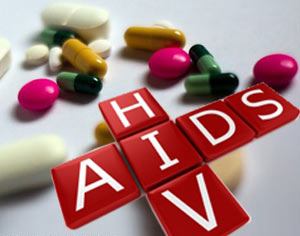The committee on petitions on the ministry of health, however appreciated the work done by the ministry
The Parliamentary committee on petitions has asked the ministry of health and family welfare to expedite the setting up of anti-retroviral treatment centres for the HIV-infected across the country.
“Keeping in view the urgent need for the affordable treatment of HIV positive patients in the country, the committee reiterates its earlier recommendation and urges the Ministry of Health and Family Welfare to strengthen its network and take necessary steps to speed up the process of establishing new public-private partnership anti- retroviral treatment centres,” the committee said.
The Committee on Petitions on the Ministry of Health and Family Welfare in its 56th report presented in Parliament asked the ministry to apprise it within three months about the steps taken.
The idea, the committee said, is to provide consistent access to “affordable and efficacious” medication regime for the treatment of HIV positive patients.
There are currently 11.5 lakh People Living with HIV(PLHIVs) who are taking free ART through 536 ART centres in the country.
There are currently 11.5 lakh People Living with HIV(PLHIVs) who are taking free ART through 536 ART centres in the country.
The panel chaired by Bhagat Singh Koshyari, has also asked the ministry to devise a mechanism for providing access to subsidised anti-retroviral therapy for poor people, orphan and destitute children infected with HIV.
It also mooted the idea of linking ART centres in a time bound manner.
“The committee is astonished to note from the reply of the Ministry of Health and Family Welfare that even after a lapse of more than a year, there are only 22 PPP anti-retroviral centres established in private hospitals across the country and scaling up of the same is still under process,” the committee noted with concern.
“Basically, there are two very important things which do not allow the HIV positive patients to get their right treatment and that too at the right clinic, i.e., (i) financial requirement; and (ii) inability of HIV positive patients to afford medication,” it said.


